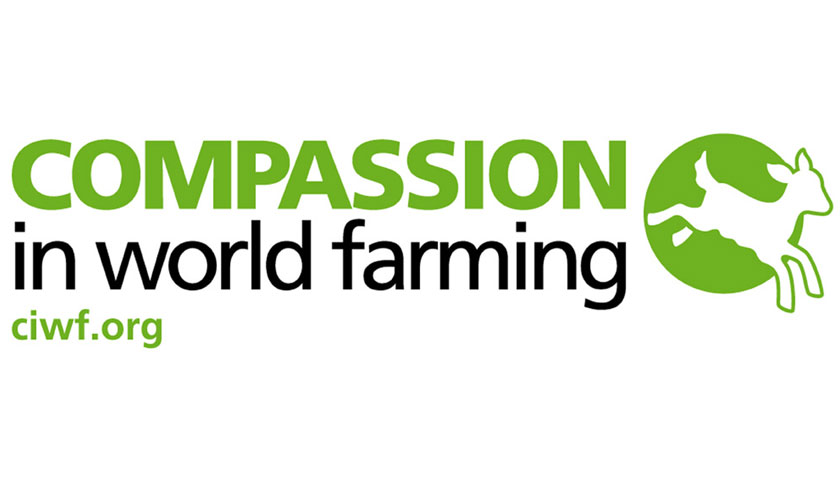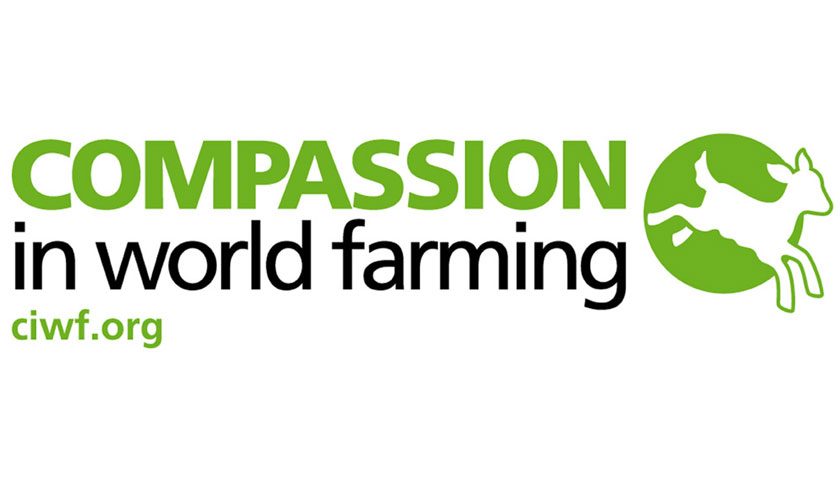Despite the impact of the COVID-19 crisis, companies and producers continue to make progress on their commitments to source only eggs from hens that are cage-free by 2026 or sooner, according to Compassion in World Farming’s annual EggTrack report.
According to the 2020 report – the first to expand beyond the US and Europe to include global company commitments – 134 of 210 (63%) companies tracked made progress towards meeting their cage-free commitments. Of the 210 companies, 80 operate globally, 57 operate only in North America or the United States, and 73 operate only in Europe.
For the first time, EggTrack provides a true birds-eye view of the global egg market and shows that the increase in demand for cage-free eggs is growing globally and having an impact on the market.
Since 2016, the number of companies with global cage-free commitments has grown from five to more than 37. This list includes global giants like Unilever, Nestlé, Grupo Bimbo, Compass Group, Aldi Nord, and Aldi Sud. Barilla is the only company to have met their global cage-free commitment, which it did in 2019.
At the same time, however, a significant number of multinational companies such as internationally recognised brands like McDonald’s, Subway, Walmart, and Burger King, have committed to eliminate cages in some regions but have yet to extend those commitments across their entire global supply chains. Laying hens experience the same physical, behavioural, and psychological distress of being caged wherever they are reared – we therefore look forward to these global giants extending their cage-free commitments soon.
Compassion in World Farming launched EggTrack four years ago to monitor food companies’ progress towards their commitments to purchase 100% cage-free eggs. Companies were selected based on their size, egg footprint, market influence and commitment deadline and were asked to publicly disclose or update their cage-free percentage this year ahead of 31 July 2020. All information in the tracker is based on companies’ publicly disclosed information as public progress-reporting demonstrates that a company holds itself accountable to the commitment it makes.
EggTrack with its annual progress reporting enables Compassion to offer timely help, advice and support for companies making the transition to cage-free systems, for all eggs, including the often forgotten ‘ingredients eggs.’
Some global company highlights from the 2020 Egg Track include:
- General Mills increased its global cage-free sourcing from 40% to 55%
- Danone increased its global cage-free sourcing from 43% to 88%
- Aramark, Sodexo and Compass Group all reported global and US progress across all egg types: shell, liquid and processed
- McDonald’s are reporting 100% cage-free shell eggs in Europe, and although they have achieved cage-free status on both shell eggs and egg product/ingredients in four European countries (UK, Germany, France, Netherlands), they do not yet have a global cage-free commitment.
- Subway are reporting 100% cage-free for both shell eggs and egg products/ingredients in Europe but they do not yet have a global cage-free commitment.
- Barilla is the only company to have met its global cage-free commitment in2019.
In Europe, EggTrack has seen an increase in companies reporting on their transition to cage-free eggs (as part of a global or regional commitment), from 57 in 2018, to 83 in 2020. Of that 83, 53 companies reported fully against all relevant egg types (shell, liquid and processed), and 30 reported progress for only part of their commitment.
Nineteen companies reported meeting European commitments this past year including Unilever, Caffè Nero and Groupe Holder in France, while 15 (including Bennet, Groupe Avril, L J Fairburn and Son in the UK) reported progress for the first time in 2020.
EggTrack also highlights major progress in Europe with companies such as Costa Coffee, Hilton Worldwide and Gruppo Cremonini beginning to report, while Greggs, Starbucks and Aldi Nord are nearing completion of their current cage-free egg commitments. (For UK specific highlights see Notes to Editors).
However, although many companies have stood by their commitments, others are falling behind. In Europe, at least 19 companies have transitioned less than half of their supply, three of which have transitioned a quarter (or less) of their supply. (Auchan, Gruppo Pellegrini, Mondelēz). Despite the slow progress of some companies, 42% of 2025 commitments are being reported on (vs 30% last year).
While some companies have missed deadlines, others have omitted their cage-free commitments from the public domain, either as a result of an intentional retraction or an inadequate prioritisation of animal welfare commitments during website updates and changes.
These include:
- CKE Restaurants, Krispy Kreme Donuts, Paluani, Continental Foods, Asda, Independent Grocers Alliance (IGA), Pret a Manger, IKEA, and B.GOOD: had whole or regional commitments that can no longer be found in the public domain.
- Pret a Manger, Balocco, Paluani, Sammontana, Hy-Vee Market Grille, and The Fresh Market have all missed their commitment deadlines and have not reported progress against them.
- Burger King retracted its European cage-free egg commitment.
With fewer than five years to meet a 2025 cage-free commitment deadline (2026 for some businesses in the US), companies need to speed up their rate of transition. However, they should be careful not to opt for systems that are not future proof or which pose a risk to a truly cage-free future. ‘Combination’ and ‘limited access’ systems, which are marketed by manufacturers as ‘cage-free’ and endorsed by some industry groups, represent high risk. These systems have internal partitions and doors which, when closed, turn back to a colony cage, and are operated at very high stocking densities. They limit hen movement and cannot be considered as truly cage-free. Companies must do their due diligence to ensure these systems are not used and instead invest in well-designed, spacious aviary systems that meaningfully improve the lives of laying hens.
Dr Tracey Jones, Director of Food Business at Compassion in World Farming concludes: “It has never been clearer that the future of egg production will be – and must be – cage-free. This year’s EggTrack report shows that although progress has been made, which is remarkable against the backdrop of the Coronavirus pandemic, there is still considerable work to be done, especially as we increase our focus at a global level and track commitments for all egg types, not just shell.
“Companies are leading the way on a cage-free future but building a supply chain capable of meeting the 2025 demand for cage-free eggs will take time and cooperation between producers and purchasers. It also requires investment into well-designed systems if we are to deliver the expected welfare benefits that can stand the test of time for consumer acceptability.
“Cage-free egg production is not a nice to have – it’s an imperative – and we call on all companies, especially those with global footprints, to meet the challenge and commit to cage-free eggs throughout their entire global supply.”

